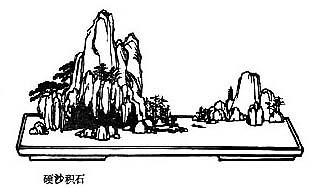Sun Zi 
 – The Art of War
– The Art of War
Chinese strategy explained : know yourself and the ennemy, use deception, spies, and "win with ease". Tr. Giles (en, annotated) and Amiot (fr).
The Attack By Fire
Rather more than half the chapter (SS. 1-13) is devoted to the subject of fire, after which the author branches off into other topics.
Sunzi XII. 10.
Unhappy is the fate of one who tries to win his battles and succeed in his attacks without cultivating the spirit of enterprise; for the result is waste of time and general stagnation.1
Hence the saying: The enlightened ruler lays his plans well ahead; the good general cultivates his resources.2
Giles XII.15,16.
Les différentes manières de combattre par le feu, telles que je viens de les indiquer, sont ordinairement suivies d'une pleine victoire, dont il faut que vous sachiez recueillir les fruits. Le plus considérable de tous, et celui sans lequel vous auriez perdu vos soins et vos peines, est de connaître le mérite de tous ceux qui se seront distingués, c'est de les récompenser en proportion de ce qu'ils auront fait pour la réussite de l'entreprise. Les hommes se conduisent ordinairement par l'intérêt ; si vos troupes ne trouvent dans le service que des peines et des travaux, vous ne les emploierez pas deux fois avec avantage.
Amiot

The Art of War – Sun Zi XII. 10. – Chinese off/on – Français/English
Alias Sun Tzu, Sun Wu, Sun Tse, Sunzi Bingfa, Souen Tseu, Souen Wou, 孫武.
The Book of Odes, The Analects, Great Learning, Doctrine of the Mean, Three-characters book, The Book of Changes, The Way and its Power, 300 Tang Poems, The Art of War, Thirty-Six Strategies
Welcome, help, notes, introduction, table.
Index – Contact – Top
